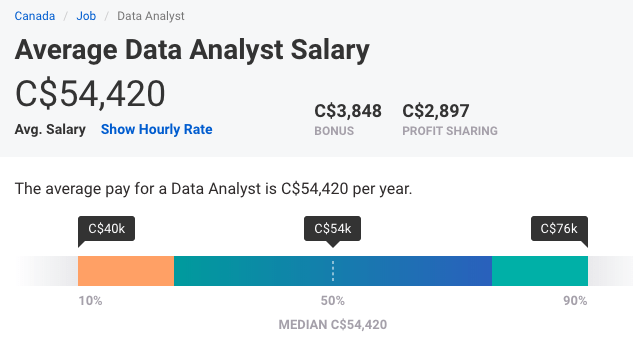[Introduction] Artificial Intelligence has long been integrated into all aspects of our lives. The field of artificial intelligence is becoming more and more popular. China's implementation of artificial intelligence technology is at the forefront of the world, but its progress in basic research still needs some catching up compared to other countries in the world. On the other hand, Canada's computer and information technology are in a leading position in the world. So, which schools in Canada offer these majors? What are the professional skills taught in this major? What are the employment prospects and salaries? How do netizens and UtoCanada view this major? Let's take a look!
Introduction to the Canadian AI major
China's implementation of artificial intelligence is at the forefront of the world, and AI can be found everywhere in all aspects of our lives. Camera filters, smart parking systems, facial recognition payments, real-time voice translations, online shopping recommendations, etc. are all examples of when our lives have been touched by the magic of artificial intelligence. This, of course, is driven by many Internet companies, but the basic research of domestic artificial intelligence, in the world is still in its development stages.
Canada's technological level is highly developed, and its computer and information technology are in a leading position in the world. If you want to study computer science or artificial intelligence, coming to Canada will be a good choice. In Canada, 90% of colleges and universities offer paid internships, coupled with tens of thousands of job vacancies in Canada, there is an urgent need for skilled talents. Studying this major Canada will not only allow you to learn the world's top artificial intelligence technology, but also to graduate with valuable work experience.

What knowledge and skills do students learn in Canadian AI majors?
Artificial intelligence is a high-level discipline, belonging to the intersection of social and natural sciences. The study aims to understand the essence of intelligence and produce intelligent machines that that mimic "cognitive" functions that humans associate with the human mind. The research in this field includes image recognition, language recognition, specialized systems, natural language processing and robotics, etc. It covers mathematics, psychology, neurophysiology, information theory, computer science, philosophy and cognitive science, uncertainty and cybernetics. Research areas include natural language processing, machine learning, neural networks, pattern recognition, intelligent search, etc. Applications include machine translation, language and image understanding, automated programming, expert systems, and more.
In terms of the correlation between artificial intelligence and other disciplines, it is clear that computer science is the most relevant; while unexpectedly, biology has the least relevance. Work in the AI field requires professionals to have a very solid and extensive mathematical foundation, and also a high level of practical skills. Computer science happens to focus on training in both aspects. If you want to specialize in this field, CS is an excellent choice for undergraduates. All fields require AI talents or those who can work with AI, and a large number of these high-end talents will come out of CS majors.
Canada has AI-specialized institutions that provide one-to-two-year master's or doctoral degree programs. Canadian colleges and universities will provide students with cooperative paid internship opportunities after the last semester, giving students the opportunity to apply the knowledge they have learned in the classroom and gain practical experience before graduation.

Employment prospects for Canadian AI graduates
The faster the development of technology and the better the development of automation and artificial intelligence, the greater the demand for software. Although the world's software research and development are concentrated in China, India and Ireland, Canada is still world-class in software security research and development. In addition, many software need to be locally modified, and positions in this industry need to be filled urgently, so students can rest assured when choosing related majors.
Relevant positions include:
- Data scientist
- AI scientist/analyst/technician
- Machine Learning Analyst/Technician
- Business transformation consultant
- Business Analyst
- Data steward
- Data engineer
- AI system developer
》Job description of a data analyst
According to the PayScale description,,
A data analyst uses data to acquire information about specific topics. This usually starts with the survey process, in which data analysts find survey participants and gather the needed information. The data is then interpreted and presented in forms such as charts or reports. Data analysts may also put their survey data in online databases.
To become a data analyst, you must be be knowledgeable in computer programs such as Microsoft Excel, Microsoft Access, SharePoint, and SQL databases. Data analysts also must have good communication skills, as they must have an open line of communication with the companies with which they work. Data analysts should be able to work indoors with clients, supervisors, and managers to meet goals set by all parties. A data analyst should be willing to work hard for the betterment of their company.
Specifically, the job responsibilities of a data analyst are:
- Collect, analyze, and report data to meet customer needs.
- Identify new sources of data and methods to improve data collection, analysis, and reporting.
- Collect customer requirements, determine technical issues, and design reports to meet data analysis needs.
》Salary of AI graduates: The decisive factors & annual income
According to PayScale statistics,in Canada, the average annual salary of a data analyst is $54,420 CAD. The lower-end salary is at $40,000, and the higher-end salary can reach over $76,000.
Summary: UtoCanada's view on the AI major
From 1950, when Alan Turing published his paper, "Computing Machinery and Intelligence" on the topic of artificial intelligence and his concept of the Turing test; to 2012, when Deep Learning won the ImageNet challenge with an absolute lead; and then, to 2016, when AlphaGo defeated the internationally renowned Go player, Lee Se-dol; we bear witness to the rapid development of artificial intelligence. Whether we are taking selfies with our mobile phones, listening to songs, going out to pick up a purchase, or parking in the garage of our apartment; artificial intelligence provides boundless convenience to our lives.
The workplace social media platform LinkedIn released the "Global AI Talent Report" in July last year, showing the surge in demand for talent in the global AI field. The data shows that the number of artificial intelligence jobs posted through the platform soared from 50,000 in 2014 to 440,000 in 2016. Among them, there is a high demand for artificial intelligence talents, especially in algorithms, machine learning, GPU, smart chips, etc. Therefore, there has been a significant shortage of talent in these industries.
Currently, about 32% of talents in the field of artificial intelligence in China come from Tsinghua University, Peking University, Chinese Academy of Sciences, and Zhejiang University. As Baidu, Alibaba, Tencent, Huawei and other high-tech companies continue to explore the development and implementation of artificial intelligence technology, more talents and capital will flow into the implementation field of the artificial intelligence industry. Statistics show that there is an obvious shortage of artificial intelligence talents at present, and this situation is still escalating. In the current social and technological environment, talents with both solid professional skills and mixed backgrounds are needed. Among Internet companies, the salary of artificial intelligence ranks third, and the highest salary is for professionals in the direction of voice recognition. A headhunter revealed that last year the annual salary of graduates in the field of artificial intelligence was about 300,000 RMB, and that of doctoral graduates was 500,000 RMB. This year, it is likely for doctoral graduates to earn up to 800,000 RMB.
If you study artificial intelligence in Canada, in addition to being exposed to advanced and excellent hardware facilities, there are also opportunities for paid internships at the top technology giants. If you have sufficient qualifications and fulfill your potential in a related industry, then this major is for you!
Reference article:


















